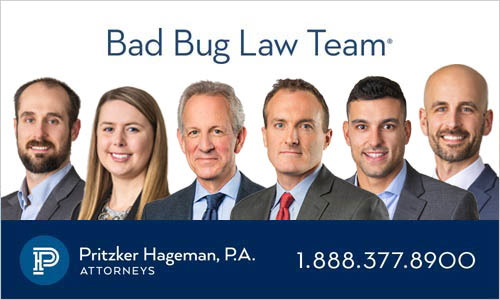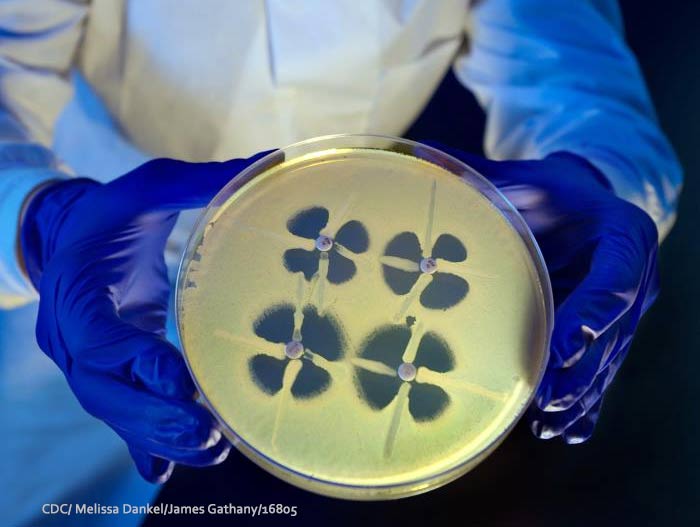Our lawyers can help you file a lawsuit against a restaurant for compensation and justice. They have won money for clients sickened in food poisoning outbreaks involving the following pathogens: Campylobacter, Cyclospora, E. coli, hepatitis A, Listeria, Salmonella, Shigella, and Vibrio.
1. What compensation can I seek?
You can usually seek compensation for medical expenses, lost income, pain and suffering, and emotional distress. Your spouse may also have a claim. Our lawyers have won money for spouses for loss of comfort and companionship and other emotional and psychological injuries. If a family member has died from food poisoning, our lawyers can help you and your family with your wrongful death claim. Our lawyers have helped many, many clients get compensation, including multimillion-dollar settlements. We know, however, that it is not just about the money. Our clients want answers and justice. You can contact our law firm using the form below.
2. Do I need to make sure my stool sample is tested?
Yes, your stool sample should be tested for Campylobacter, E. coli, Salmonella, Listeria monocytogenes, or Shigella. If any of these are found in your stool, additional genetic testing should be done. You should contact one of our lawyers for assistance. We have experience with genetic testing procedures.
3. What if I ate at more than one location?
Our lawyers have successfully applied the doctrine of alternative liability to food poisoning cases. Under the doctrine of alternative liability, all parties linked to an outbreak can be held liable for each victim’s injuries. If the location is a national chain, it could be owned by individual franchisees or by the corporate parent. This is often an issue with these claims.
4. What if health officials don’t find the food responsible for the outbreak?
While it is always best if contaminated food can be found at the restaurant, it is not always necessary for a lawsuit. Liability can be proven through epidemiology and microbiological tests of outbreak victims if the outbreak has been already linked to the restaurant by public health officials.
5. Is the corporate owner the only company involved?
Maybe not. Some restaurants are owned by a corporate parent, some are owned by individual franchisees and not a central corporation, and some are owned by individuals. Corporate and insurance documents would have to be examined by our lawyers to determine who should be sued.
In addition, you may have also have claims for compensation against other companies, including (but not limited to), supplier, distribution center, processor, grower, and transport company.
6. What if the contamination is traced to a distributor or another party?
Even if the contamination is traced to another business, there may be liability for any injuries resulting from consumption of food served. This means you may have claims against multiple parties. For most food poisoning cases, it is best to sue every party possible to make sure that the victims are compensated. If one of the parties goes bankrupt or exhausts its insurance coverage, there will still be another liable party from which a victim may collect damages.
7. Do I need to have leftovers from the restaurant for a lawsuit?
You may not need to have leftovers to file a restaurant lawsuit. As part of a food poisoning outbreak investigation, health officials take stool samples of victims. If the pathogen involved is bacteria, there are additional tests that can be done on cells of bacterium found in your stools (from a stool test done by your doctor) that can provide a genetic fingerprint of the strain of foodborne pathogen (Campylobacter, Cyclospora, E. coli, Salmonella, Shigella) that has made the victims of the outbreak sick. These tests are called pulsed-field gel electrophoresis (PFGE) and whole genome sequencing (WGS). These genetic fingerprints can prove you are part of an outbreak and, in some cases, that a specific food product made you sick.
8. What if the source of the outbreak was a sick food handler?
In some outbreaks, particularly those involving hepatitis A, the source of the illnesses is a sick food handler at the restaurant. We have won cases like this, and you should always talk with an attorney to find out if you have a case.
9. How can I file a restaurant lawsuit?
Below are 10 steps to filing a lawsuit against a restaurant:
- Determine the specific pathogen that made you sick (your doctor will need to do this);
- Because of these cases rely on specialized knowledge of both the law and science, you should immediately hire an attorney with experience winning cases like yours (not just “food poisoning” cases, but cases involving the specific pathogen that made you sick (E. coli, hepatitis A, Listeria, Salmonella, etc.).
- Report your case to your local health department (your doctor may do this);
- Determine if others were also sickened;
- Find the source of the illnesses;
- Find out if a grower, processor, distributor and/or supplier can also be sued;
- Gather enough evidence to take legal action (your lawyer is responsible for this);
- Once you have sufficient evidence to support a claim, send a demand letter to the restaurant and any other company that may be legally responsible;
- Begin settlement negotiations (your lawyer will do this);
- If a settlement cannot be reached, file a lawsuit.

Attorney Fred Pritzker and his Bad Bug Law Team have gained a national reputation for excellence in the area of food poisoning litigation. They have recovered millions for clients, including a recent $4,500,000.00 settlement and many other multimillion-dollar recoveries for clients.
For more information, please read, “Can I Sue a Restaurant for Food Poisoning?”
Pritzker Hageman, P.A. is a national law firm that represents food poisoning victims throughout the United States. We do not file class action lawsuits unless it is in the best interests of our clients.

